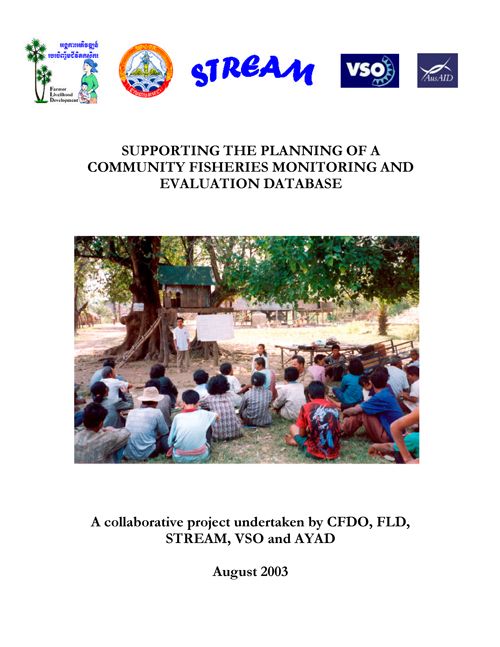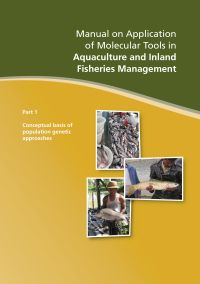Supporting the planning of a community fisheries monitoring and evaluation database
1 August 2003 | 669 Downloads | .pdf | 1.05 MB | Gender, Livelihoods, gender and social issues, Cambodia, Governance and Policy
Cambodia is among the poorest 20 countries in the world with 90% of its rural poor comprising those with fishing and agriculture as primary sources of income, who depend on aquatic resources, small-scale rice farming and forest resources (MoP 1999). Freshwater capture fisheries are the largest source of supply of fish and their sustainable management is of paramount importance to food security, income generation and sustainable livelihoods in Cambodia. Subsistence fishers constitute significant groups of poor people who use aquatic resources as part of their diverse livelihoods portfolios, in the rivers, lakes and inundated forests in Tonle Sap provinces, the lower Mekong and Bassac regions and the upper part of the Mekong.
The major issues for poor aquatic resource users in Cambodia revolve around the rights and access to fishing grounds and communication between the poor and agencies that support them. The management of common property aquatic resources is of over-riding importance to food security and sustainable rural development. The abolition of many commercial fishing lots provided an opportunity for poor aquatic resources users to exert greater legal control over the resources upon which their livelihoods depend. However, many poor aquatic resource users are unable to respond to these opportunities due to ineffective community representation within co-management.
A significant development problem within fisheries is the effectiveness of mechanisms for collecting and sharing data and the validity and usefulness of the data collected. There is a need to strengthen the data collection and sharing mechanisms for co-management. If local communities are to play an effective role in promoting good governance, community management needs to be sustainable, and the emerging trend towards people-centered approaches needs to be maintained.
CFDO’s management of Community Fisheries in Cambodia aims to improve the livelihoods of the rural poor. By focusing on collecting and managing information related to Community Fisheries, the CFDO hope to better understand issues relating to the sustainable use of the natural resources pertaining to subsistence living. The better the understanding of issues affecting Community Fisheries, the higher will be the CFDO’s capacity to co-manage fisheries, and to coordinate with provincial staff involved in Community Fisheries.
This report illustrates the development of a pilot data collection, sharing and interrogation mechanisms for key information in support of co-management, identifying information requirements and procedures for the transmission and sharing of information between relevant stakeholders.
A combination of focus group interviews with the community committee and village leaders, and participatory rural appraisal, which involved the whole village, was used as a means of information compilation. The focus group interviews helped to identify quantitative data while the participatory rural appraisal enabled discussion of qualitative data. In this way a baseline for monitoring and evaluating the co-management of Community Fisheries in the provinces might be evolved. The object of the pilot database project was to examine the processes not specifically to collect information.
The system identifies a process of identifying and recording the Community Fisheries by the combined use of local knowledge and GPS. Conflicts around co-management and measures to combat these were noted. The maturity and operation of Community Fishery was determined by monitoring election turnout, administration processes and perceived levels of success, knowledge of the concept of a Community Fishery, the use of by-laws, establishment of fish sanctuaries, formation of patrolling groups and the documentation associated with these.
A simple database system was developed that enables data to be stored and processed electronically, and reports generated. The data may be updated as required while further enhancement of the system will enable the information to be analyzed and developed into a useful presentation suitable for distribution among the stakeholders.
Community Fisheries are very much in their infancy with large differences in the abilities and the understandings of many of the committees, however there are already some effective committees with a clear appreciation of their roles in their future development. By continuing dialogue amongst government and community stakeholders and the use of an appropriate information database, there is a real opportunity to enhance the livelihoods of poor people in fishing communities by directing appropriate advice or assistance in the areas most needed.
Creative Commons Attribution.

